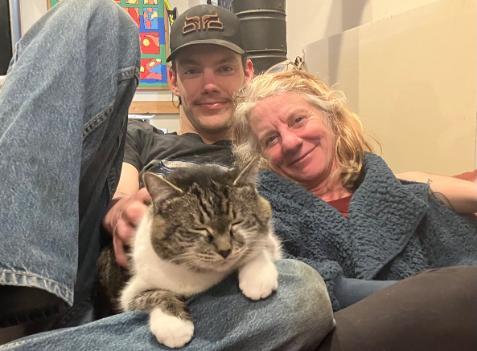Academic or Applied Learning?
Tracy Punchard, Dean, School of the Arts, School of Hospitality & Tourism, School of Industry Trades & Training
I’m a book nerd. Leave me in the library and I’m in heaven. Read. Think. Write. Repeat. I loved university. I type like a demon but otherwise am useless with my hands.
In 2019, following many years in university arts and sciences, I was challenged, in the good way, with an appointment to dean of programs in hospitality, the arts and technology, and trades.
The timing seemed apt as my son, who is a smart kid, was on his way to study automotive mechanics. I looked forward to countering the stigma attached to applied learning—that it is not “intellectual,” and the trades are for kids who don’t do well in academics.

As part of my introduction to these schools, Ceramics instructor Robin Dupont loaned me a book (smart guy!) called Shop Class as Soul Craft: An Inquiry into the Value of Work by Matthew B. Crawford (2010). Crawford got a PhD in political science, started working at a think tank in Washington, quit and opened a motorcycle repair shop. The premise of the book lies in his claim, “There was more thinking going on in the bike shop than in the think tank.”
With stories and metaphysical musings, Crawford illustrates the kind of intelligence it takes to diagnose a misfiring problem in a motorcycle when all the diagnostic procedures and manuals fail to provide the answer. For the residential electrician, there is “pride in meeting the aesthetic demands of a workmanlike installation.” When he tells how craft knowledge entails knowledge of the “ways of one’s materials … acquired through disciplined perception,” he is talking as much about playing the guitar as building a deck.
When I attend gala events where our students display their culinary arts and year-end shows in music, arts and fabrication, I witness Crawford’s point that being a student in applied arts and trades takes courage. The student’s finished product is there for all to see (or hear). Failures and shortcomings cannot be interpreted away.
Crawford ends by asking, “What is it that we really want for a young person when we give them vocational advice?” The only creditable answer, he argues, “is work that engages the human capacities as fully as possible.” My vocation started with English literature; my son’s with diesel engines. How fortunate we are that Selkirk College offers students so many paths to explore.